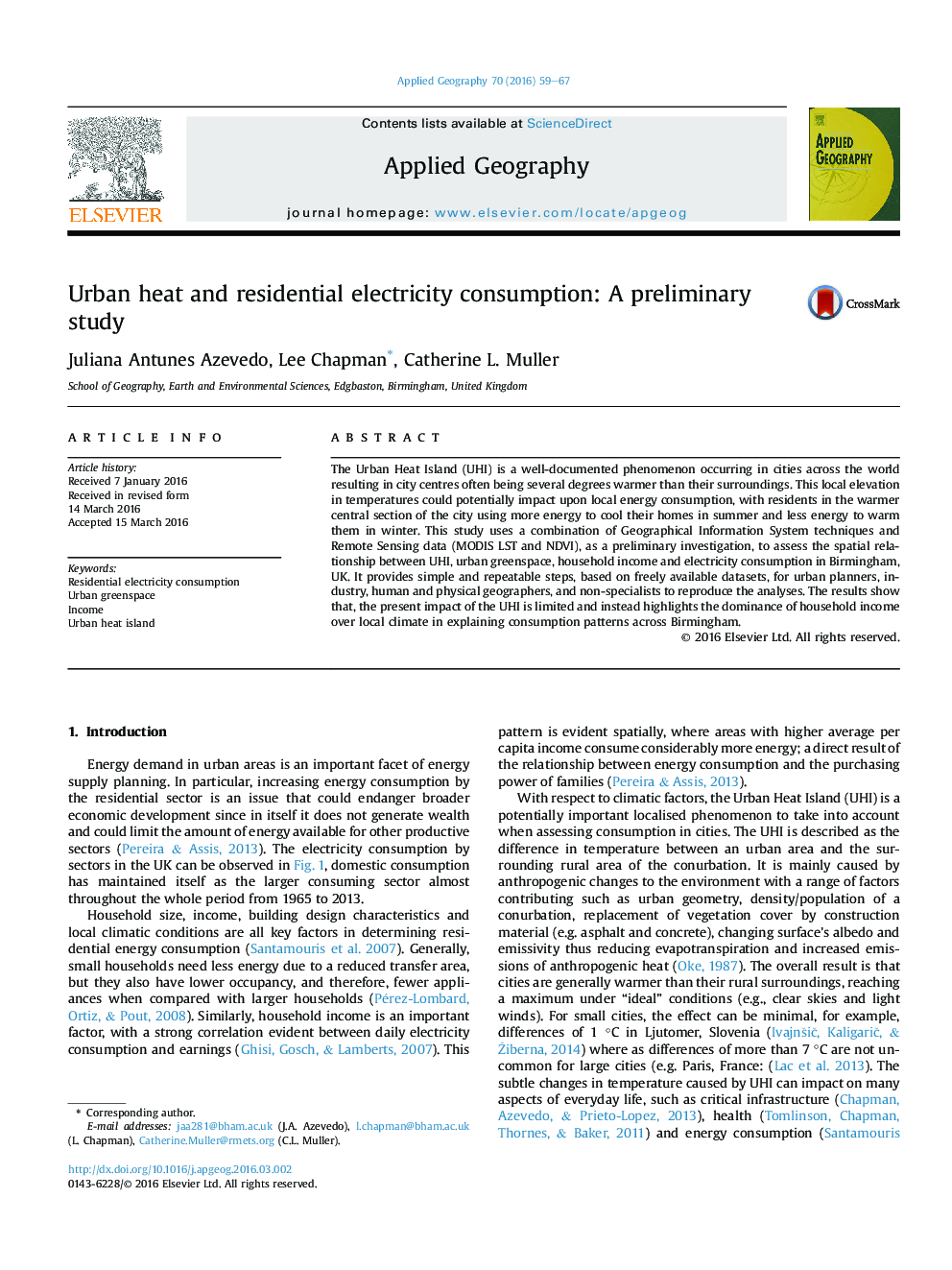| Article ID | Journal | Published Year | Pages | File Type |
|---|---|---|---|---|
| 6538409 | Applied Geography | 2016 | 9 Pages |
Abstract
The Urban Heat Island (UHI) is a well-documented phenomenon occurring in cities across the world resulting in city centres often being several degrees warmer than their surroundings. This local elevation in temperatures could potentially impact upon local energy consumption, with residents in the warmer central section of the city using more energy to cool their homes in summer and less energy to warm them in winter. This study uses a combination of Geographical Information System techniques and Remote Sensing data (MODIS LST and NDVI), as a preliminary investigation, to assess the spatial relationship between UHI, urban greenspace, household income and electricity consumption in Birmingham, UK. It provides simple and repeatable steps, based on freely available datasets, for urban planners, industry, human and physical geographers, and non-specialists to reproduce the analyses. The results show that, the present impact of the UHI is limited and instead highlights the dominance of household income over local climate in explaining consumption patterns across Birmingham.
Related Topics
Life Sciences
Agricultural and Biological Sciences
Forestry
Authors
Juliana Antunes Azevedo, Lee Chapman, Catherine L. Muller,
